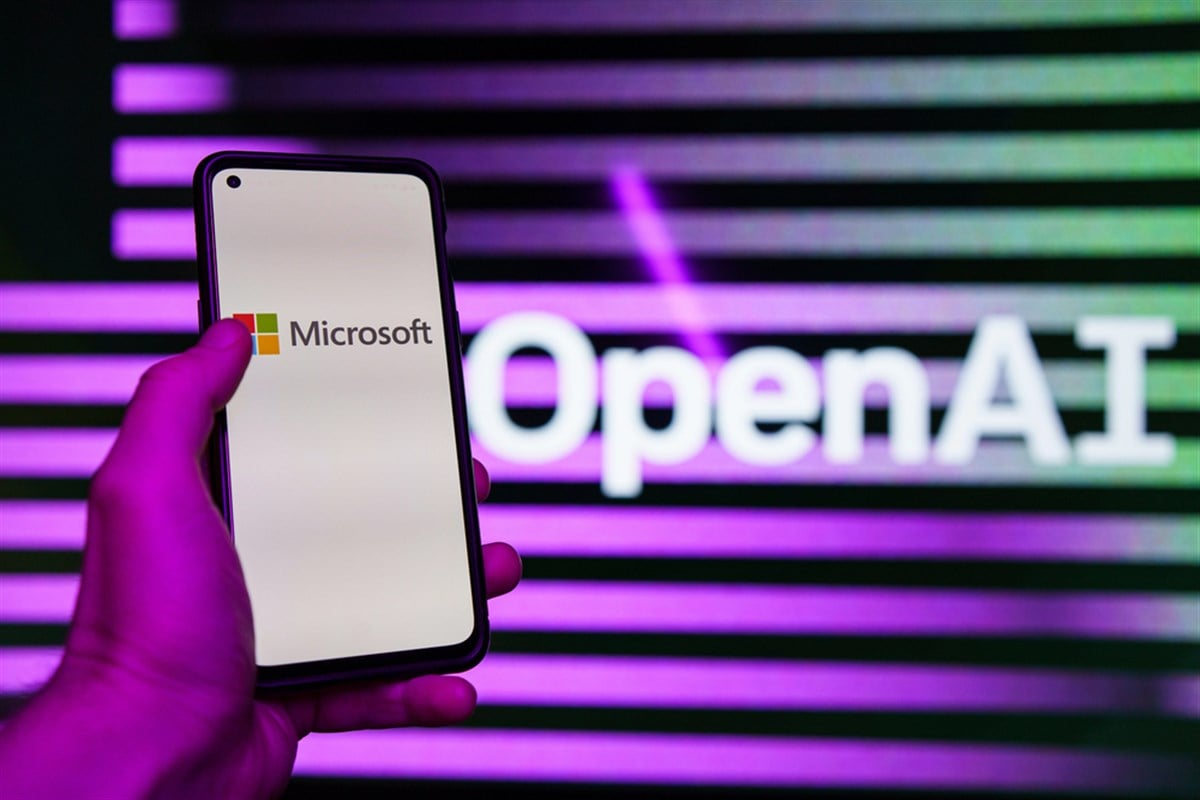|
|
|

|
|||||

|
|

OpenAI made a big splash last week when, on Oct. 28, it announced a corporate restructuring that many analysts see as the company paving the way toward its IPO.
The move establishes Microsoft (NASDAQ: MSFT), a lynchpin of The Magnificent Seven, as a major stakeholder with an interest of around 27% in OpenAI Group PBC. Meanwhile, the OpenAI Foundation—the nonprofit arm of the ChatGPT maker—will hold a $130 billion equity stake in OpenAI Group PBC.
Beyond the enormous stake Microsoft has taken, the move positions it—and other accredited investors—to benefit enormously if and when OpenAI Group PBC decides to go public. When that happens, there is market speculation that its initial price offering (IPO) could be valued at around $1 trillion.
To put that prospective valuation into context, Alibaba Group (NYSE: BABA) and Meta Platforms (NASDAQ: META) have seen the two highest IPO valuations on record at $175 billion in 2014 and $104 billion in 2012, respectively.
Here’s why the company could break records if that plan to go public comes to fruition.
According to Bret Taylor, the chair of OpenAI's board of directors, the recent restructuring aligns with the company’s long-term vision of being built to benefit everyone. And to achieve that end, the company plans to go well beyond large language model-trained generative AI—such as ChatGPT, text-to-image generator DALL-E, and text-to-video generator Sora—which can help college students circumvent research papers and assist corporate employees in creating engaging slideshow presentations. But they aren’t world-changing applications.
For example, Taylor noted in his Oct. 28 article about the restructuring that “the OpenAI Foundation will fund work to accelerate health breakthroughs so everyone can benefit from faster diagnostics, better treatments, and cures.” While that may seem like a far-fetched goal, Taylor pointed out that it will begin with creating “open-sourced and responsibly built frontier health datasets, and funding for scientists.”
Another application, according to Taylor, is cybersecurity. In his article, he highlights how "protecting power grids, hospitals, banks, governments, companies, and individuals [requires] a parallel resilience layer for AI.” The company’s nonprofit foundation will devote resources to practical technical solutions in this regard. As last week’s hack of the Congressional Budget Office by a foreign entity shows, the need for cybersecurity is greater than ever before.
The company’s all-in-one API platform is accessible to businesses and developers, enabling them to build, deploy, and optimize production-ready AI agents faster, using either pre-built components or building from scratch. Meanwhile, OpenAI’s Codex is a model specifically designed to assist software developers in writing, debugging, and interpreting code across multiple programming languages. In a practical example, it was used to develop Microsoft’s GitHub Copilot.
Other applications from OpenAI include its automatic speech recognition (ASR), a system trained on diverse datasets to immediately transcribe and translate spoken language, even in the presence of background noise or various accents. Another, ChatGPT Atlas, aims to shake up the web browser space by integrating the ChatGPT assistant directly into a web navigation tool. That’s something that could be an enormous threat to Google search as well as Chrome, the browser offered by Alphabet (NASDAQ: GOOGL).
The company hasn’t gone public yet, but the list of collaborations and strategic partners it has in place is nothing short of jaw-dropping. When it comes to hardware and supercomputing infrastructure, OpenAI already has partnerships in place with Microsoft, Oracle (NYSE: ORCL), and NVIDIA (NASDAQ: NVDA).
At the same time, the company has collaborated with other companies, including Apple (NASDAQ: AAPL) and toymaker Mattel (NYSE: MAT), to integrate its AI capabilities into a wide range of third-party consumer products and enterprise software, with applications spanning healthcare, finance, and other industries. As examples, OpenAI is powering Apple Intelligence, which is featured in a product suite that includes the iPhone, iMac, and Apple Watch.
Amazon's (NASDAQ: AMZN) hyperscaler arm, Amazon Web Services (AWS), signed a $38 billion deal with OpenAI to provide cloud infrastructure and access to NVIDIA’s GPUs for OpenAI’s training and scaling goals.
Other companies with partnerships in place include Broadcom (NASDAQ: AVGO), Samsung (OTCMKTS: SSNLF), Booking Holdings (NASDAQ: BKNG), Associated Press, The Wall Street Journal, Salesforce (NYSE: CRM), and Vox Media. The company’s deal with Walmart (NYSE: WMT), will allow customers and Walmart+ members to make purchases directly within ChatGPT.
But what could be OpenAI’s biggest partner yet could come in the form of the U.S. federal government. It was reported on Thursday, Nov. 6, that the company is in discussions with the government for loan guarantees to spur the construction of chip factories in the United States, aiming to strengthen the domestic chip supply chain.
Before you make your next trade, you'll want to hear this.
MarketBeat keeps track of Wall Street's top-rated and best performing research analysts and the stocks they recommend to their clients on a daily basis.
Our team has identified the five stocks that top analysts are quietly whispering to their clients to buy now before the broader market catches on... and none of the big name stocks were on the list.
They believe these five stocks are the five best companies for investors to buy now...
The article "OpenAI's Restructuring Sets up What Could Be the Biggest IPO Ever" first appeared on MarketBeat.
| 1 hour | |
| 1 hour | |
| 2 hours | |
| 2 hours | |
| 3 hours | |
| 3 hours | |
| 3 hours | |
| 3 hours | |
| 3 hours | |
| 3 hours | |
| 3 hours | |
| 3 hours | |
| 4 hours | |
| 4 hours | |
| 5 hours |
Join thousands of traders who make more informed decisions with our premium features. Real-time quotes, advanced visualizations, backtesting, and much more.
Learn more about FINVIZ*Elite